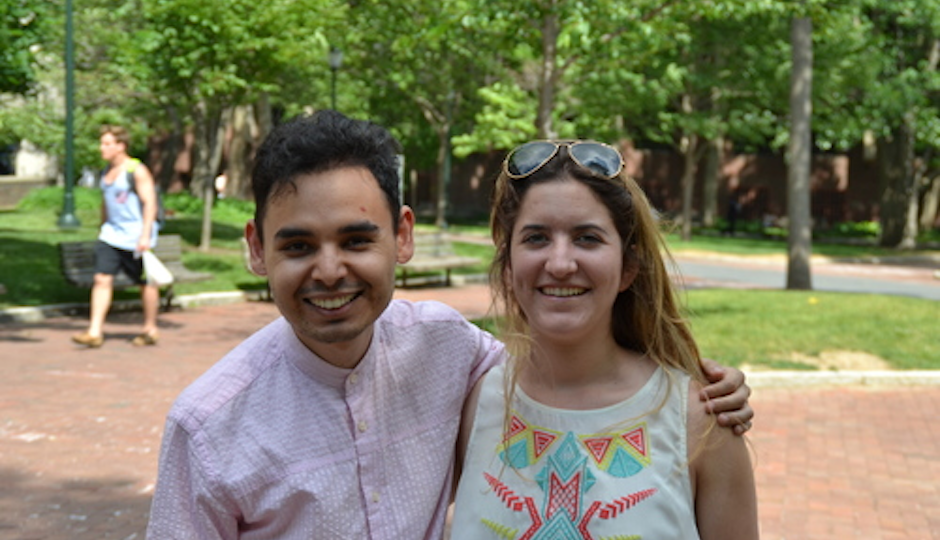Penn Alumni Establish First Ever Online Resource For LGBT Asylum Seekers

Sayid (Sy) Abdullaev and Katie Sgarro
Imagine a government that condones imprisonment, corrective action, humiliation, and even systemized rape for those who identify as LGBT.
This may sound outlandish for those of us here in the U.S., but for many people living in the 77 countries where it is illegal to be gay, these punishments are reality.
“The cultural component plays an integral role as well,” said Katie Sgarro, co-founder and co-director of AsylumConnect. “In some cultures, it is worse to be gay than to be a killer or a rapist.”
Sgarro, along with Sayid (Sy) Abdullaev, established AsylumConnect to address a very real, very pressing issue: The estimated 300,000 LGBT asylum seekers who flee their repressive homelands to come to the United States need access to resources, but up until now, there wasn’t a comprehensive forum to find appropriate information. Sgarro and Abdullaev are trying to change that.
“Our idea is very simple,” said Abdullaev. “We want to organize information on basic human needs and services for LGBT asylum seekers in one database. There really is no central location to pick up information. Where can someone get medical help, or find a soup kitchen, or a clinic?”
Abdullaev would know: He was an asylum seeker who came to the States for a better life. He met Sgarro during their time together at Penn, and through a variety of shared experiences, realized that AsylumConnect was truly a project of passion and need.
“Until I spoke to Sayid, I had no idea how bad it really was,” recalled Sgarro. “I wasn’t out at the time, but then I realized that I could give back. I could make a difference. It really changed my career and professional paths, and there is some real long-term potential.”
Right now, the organization is running on an all-voulenteer basis, with 11 individuals under the age of 25 manning the operation. AsylumConnect is currently building a city-by-city online catalog of resources for LGBT asylum seekers, with Seattle and Philadelphia as their first focuses.
For those who are interested in assisting their cause, they suggest enrolling to become contributors on their website, where they can submit appropriate resources. The AsylumConnect team will then evaluate and verify those resources before they are published in the catalog.
The pair see the catalog system as a model that could eventually scale to other populations, such as LGBT homeless youth or refugee populations who are seeking political asylum in the States.
“I can’t emphasize enough the importance of the catalog,” said Abdullaev. “It’s very exciting to be a start up with such amazing people who have such a connection to the community and who want to advocate for the cause.”
Sgarro agreed.
“The asylum seekers who come to the U.S. are very courageous,” she added. “They want to live their own truth.”


